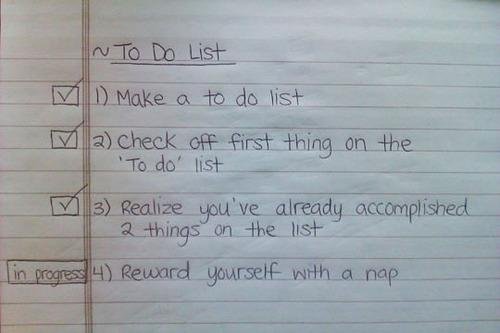What do Warren Buffett, Peter Thiel, and James Altucher have to teach us about money?

Image Source
This is the question we are considering as we work through P.T. Barnum’s book The Art of Money Getting.
This book was originally published in 1880 and is therefore no longer subject to nor protected by U.S. copyright law because the copyrights have expired.
Therefore, this book is found freely available online and the reuse of it here is permitted and may trigger content detection on the excerpts that are included for discussion.
The plan is to include excerpts and discussion through a series of posts, so there will be new content provided by me that include my thoughts on the reading to promote discussion in the comments.
Index of related Barnum Book Review posts:
Part 1
Part 2
Part 3
Part 4
Part 5

Image Source
We will pick up this session with LEARN SOMETHING USEFUL:
THE ART OF MONEY GETTING or GOLDEN RULES FOR MAKING MONEY
By P.T. Barnum
LEARN SOMETHING USEFUL:
Every man should make his son or daughter learn some useful trade or profession, so that in these days of changing fortunes of being rich to-day and poor tomorrow they may have something tangible to fall back upon. This provision might save many persons from misery, who by some unexpected turn of fortune have lost all their means.
LET HOPE PREDOMINATE, BUT BE NOT TOO VISIONARY
Many persons are always kept poor, because they are too visionary. Every project looks to them like certain success, and therefore they keep changing from one business to another, always in hot water, always "under the harrow." The plan of "counting the chickens before they are hatched" is an error of ancient date, but it does not seem to improve by age.
DO NOT SCATTER YOUR POWERS
Engage in one kind of business only, and stick to it faithfully until you succeed, or until your experience shows that you should abandon it. A constant hammering on one nail will generally drive it home at last, so that it can be clinched. When a man's undivided attention is centered on one object, his mind will constantly be suggesting improvements of value, which would escape him if his brain was occupied by a dozen different subjects at once. Many a fortune has slipped through a man's fingers because he was engaged in too many occupations at a time. There is good sense in the old caution against having too many irons in the fire at once.
BE SYSTEMATIC
Men should be systematic in their business. A person who does business by rule, having a time and place for everything, doing his work promptly, will accomplish twice as much and with half the trouble of him who does it carelessly and slipshod. By introducing system into all your transactions, doing one thing at a time, always meeting appointments with punctuality, you find leisure for pastime and recreation; whereas the man who only half does one thing, and then turns to something else, and half does that, will have his business at loose ends, and will never know when his day's work is done, for it never will be done. Of course, there is a limit to all these rules. We must try to preserve the happy medium, for there is such a thing as being too systematic. There are men and women, for instance, who put away things so carefully that they can never find them again. It is too much like the "red tape" formality at Washington, and Mr. Dickens' "Circumlocution Office,"--all theory and no result.
When the "Astor House" was first started in New York city, it was undoubtedly the best hotel in the country. The proprietors had learned a good deal in Europe regarding hotels, and the landlords were proud of the rigid system which pervaded every department of their great establishment. When twelve o'clock at night had arrived, and there were a number of guests around, one of the proprietors would say, "Touch that bell, John;" and in two minutes sixty servants, with a water-bucket in each hand, would present themselves in the hall. "This," said the landlord, addressing his guests, "is our fire-bell; it will show you we are quite safe here; we do everything systematically." This was before the Croton water was introduced into the city. But they sometimes carried their system too far. On one occasion, when the hotel was thronged with guests, one of the waiters was suddenly indisposed, and although there were fifty waiters in the hotel, the landlord thought he must have his full complement, or his "system" would be interfered with. Just before dinner-time, he rushed down stairs and said, "There must be another waiter, I am one waiter short, what can I do?" He happened to see "Boots," the Irishman. "Pat," said he, "wash your hands and face; take that white apron and come into the dining-room in five minutes." Presently Pat appeared as required, and the proprietor said: "Now Pat, you must stand behind these two chairs, and wait on the gentlemen who will occupy them; did you ever act as a waiter?"
"I know all about it, sure, but I never did it."
Like the Irish pilot, on one occasion when the captain, thinking he was considerably out of his course, asked, "Are you certain you understand what you are doing?"
Pat replied, "Sure and I knows every rock in the channel."
That moment, "bang" thumped the vessel against a rock.
"Ah! be-jabers, and that is one of 'em," continued the pilot. But to return to the dining-room. "Pat," said the landlord, "here we do everything systematically. You must first give the gentlemen each a plate of soup, and when they finish that, ask them what they will have next."
Pat replied, "Ah! an' I understand parfectly the vartues of shystem."
Very soon in came the guests. The plates of soup were placed before them. One of Pat's two gentlemen ate his soup; the other did not care for it. He said: "Waiter, take this plate away and bring me some fish." Pat looked at the untasted plate of soup, and remembering the instructions of the landlord in regard to "system," replied: "Not till ye have ate yer supe!"
Of course that was carrying "system" entirely too far.
READ THE NEWSPAPERS
Always take a trustworthy newspaper, and thus keep thoroughly posted in regard to the transactions of the world. He who is without a newspaper is cut off from his species. In these days of telegraphs and steam, many important inventions and improvements in every branch of trade are being made, and he who don't consult the newspapers will soon find himself and his business left out in the cold.
My Thoughts:
Here we have some “rapid fire” advice from Barnum.
Og Mandino once said, in his bestselling book The Greatest Salesman In The World:
So although Barnum didn’t write these as “scrolls”, I believe he would agree with the sentiment that the brevity and simplicity of his shared wisdom should not reduce their impact one jot or tittle.
Here we have Barnum’s brief words on Learning Something Useful:
“Every man should make his son or daughter learn some useful trade or profession, so that in these days of changing fortunes of being rich to-day and poor tomorrow they may have something tangible to fall back upon. This provision might save many persons from misery, who by some unexpected turn of fortune have lost all their means.”
The idea of vocational training has reemerged as of late as college debts pile up and professions are lacking professionals.
Mike Rowe, of Dirty Jobs fame, launched a website, mikeroweWORKS.com and started the Profoundly Disconnected® campaign to challenge the absurd belief that a four-year degree is the only path to success.
Another contrarian to college education would be one James Altucher who has a similar concept to “Learning Something Useful” in his latest publication Reinvent Yourself that promotes always being willing to make changes.
This idea or concept of “reinventing yourself” has long been followed by successful people.
The need to change or adapt is always present and to be useful you have to be learning.
Back to Barnum…
Next, he says in “LET HOPE PREDOMINATE, BUT BE NOT TOO VISIONARY”
“Many persons are always kept poor, because they are too visionary. Every project looks to them like certain success, and therefore they keep changing from one business to another, always in hot water, always "under the harrow." The plan of "counting the chickens before they are hatched" is an error of ancient date, but it does not seem to improve by age.”
This makes sense to me and the situations that I have been through in my life. It is easy to get my hopes up that my next big idea will turn into something great and then all my problems will be solved.
There is no way my plan to Solve All The Problems will have any problems of its own, right?
Yeah....
Anyways, the important thing is to have ideas and hope for a better future to motivate you on to doing something new and different, just don’t get lost in the fantasy land of time travel to the future where all the work is done and you are out having fun in the sun.
Instead, break your idea or dream down into smaller parts or steps that you can take to get to where you want to go.
Do one thing at one time.
Do it again, or the next thing.
Don’t try to jump from A to Z (sorry Amazon…), but do try to get from 1 to 2 to 3.
Or as Peter Thiel would put it Zero to One.
I’d maybe even say 1 to 1.1 or 1 to 1.01.
Start small.
But start!
P.T. suggest next that you should “Engage in one kind of business only, and stick to it faithfully until you succeed, or until your experience shows that you should abandon it.”
I’d agree mostly with him there.
I tend to get distracted from time to time with the different interest and things that I would like to do and then end up not doing much of anything.
There is a place for focus and getting really good at one thing to be great at it.
You may have heard of Warren Buffett's secret to success is an intense focus and doing less or more commonly referred to as the “5/25” rule or “25-5” rule.
Either way, if you don’t know, briefly:
That’s intense focus. And Buffett is wealthy as a result.
Barnum further includes “When a man's undivided attention is centered on one object, his mind will constantly be suggesting improvements of value, which would escape him if his brain was occupied by a dozen different subjects at once.”
This makes complete sense to me.
Although this is part 6 of my series on this book, I wrote part 1 through 5 all in one sitting. And now hope to finish up more of the rest all at one time.
The idea of “batching” or separating into parts and doing all of the same things on each part makes writing and blogging easier to keep up with. Additionally, I have an outline of what I intend to do and a checkbox to keep track of what I have done.
This organization helps the focused mind from having to remember all the small details and frees it up to think of the task at hand.
A focused attention is better able to see ways to improve or change things and to potentially solve bigger problems or obstacles that might be in the way.
Plus, when I bounce from task to task or try the dreaded “multitasking”, I usually end up doing all of it poorly.
Which dovetails great into the next section with the advice to “BE SYSTEMATIC”.
“Men should be systematic in their business. A person who does business by rule, having a time and place for everything, doing his work promptly, will accomplish twice as much and with half the trouble of him who does it carelessly and slipshod.”
This is the most useful productivity hack I have found to help me.
Having a plan and organized schedule or routine makes all the difference in the world.
“By introducing system into all your transactions, doing one thing at a time, always meeting appointments with punctuality, you find leisure for pastime and recreation; whereas the man who only half does one thing, and then turns to something else, and half does that, will have his business at loose ends, and will never know when his day's work is done, for it never will be done.”
This sounds like Scott Adams advice to have systems and not goals that he shares in his book How to Fail at Almost Everything and Still Win Big.
Thankfully, even Mr. Barnum realizes that humans can take a good thing too far and suggests having a limit to all these rules.
At some point, you should probably admit to yourself that you are human and have natural limits like tiredness and hunger and the like and should make sure to take care of those in their place.
This hustle til you drop is nonsense.
Sleep.
Sleep more.
Sleep as much as you can get away with while still being productive and profitable.
Plus having too many rules about things becomes just another stressor and something to keep up with.
I have heard about productivity activities that you schedule your day down to the 15 minute interval to keep you on track. Maybe that works for you, but that would drive me crazy!
Plus how much time are you not being productive when you are making your productivity plan?
Seems like making a “to-do” list just so you can cross off things on your “to-do” list

Image Source
Lastly, we have the advice to READ THE NEWSPAPERS:
“Always take a trustworthy newspaper, and thus keep thoroughly posted in regard to the transactions of the world. He who is without a newspaper is cut off from his species. In these days of telegraphs and steam, many important inventions and improvements in every branch of trade are being made, and he who don't consult the newspapers will soon find himself and his business left out in the cold.”
Well, good thing we got the internet and steemit for that now!
What do you think? Let me know in the comments below!
Next time we will pick up with and continue on with BEWARE OF "OUTSIDE OPERATIONS".
Stay tuned.
Stay interesting.
Stay Strange.

Join me on the BitShares Decentralized Exchange

Image Source
such good advice about the "one thing" ~ A constant hammering on one nail will generally drive it home at last, so that it can be clinched.
Helped me think about my dream, and that I have happened that there are days that I sleep little to see my investments, and I will have to take care of it to maintain my productivity

yes, please do sleep.
I have trouble sometimes but work to get better all the time!